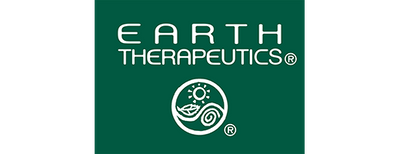Hey. I think you’re great.
Yes, you reading this right now. You read the title of this post and you were curious enough to click through.
-
Do you feel awkward when someone acknowledges your efforts?
-
Do you automatically negate a compliment by down-talking, saying “it was nothing?”
-
Does the thought of being recognized for a special skill or talent immediately make your heart race?
Yeah, me too.
Which is weird, right, because humans are incredibly social creatures built to seek companionship and approval from others. In fact, when we’re actively grateful for others, our physical and mental health improves: we’re happier.
If a major key to our happiness is giving and receiving compliments, how can we do it better?
Just say “thank you.” It’s that simple.
But it’s not that easy.
Why it’s not always easy to take a compliment
Negative self-talk is completely normal and completely pointless. It’s an insidious kind of self-defense based on the logic of “if I can tear myself down first, it’ll take out the sting when someone tries later.”
Do you remember that scene in Mean Girls when the friends stand before a mirror and catalog all of their alleged physical deficiencies?
When a friend remarks on my appearance, that’s exactly what happens in my head. It’s like there’s a set of cosmic scales and by receiving a compliment, it’s been left unbalanced and my brain jumps to restore it by humbling me.
Friend: “I love your shoes!”
Brain: “They’re last season that you got on sale.”
Friend: “Your style is amazing.”
Brain: “You look like a sloppy turnip.”
Friend: “What an amazing haircut!”
Brain: “That you spent way too much on because look what the stylist had to work with.”
Does this sound familiar?
Imagine overhearing someone say those types of things about your best friend? What if your bestie was saying it about themselves? Would you immediately start hyping them up?
Eliminating negative self-talk is simple, but it’s not easy. What does that mean, exactly? When you start to tell yourself you’re not worthy of a compliment, that you’re deficient in some way, remind yourself that simply isn’t true.
If someone is holding space to honor you, your talents, and/or your work, try not immediately to negate their opinion by letting self-doubt steal your joy.
The not-so-easy part is being diligent about recognizing and correcting the negative self-talk. It takes a bit of time and dedication to rework patterns of thinking, but it can be done.
Making that distinction can go a long way towards improving our relationship with ourselves.
Taking the compliment graciously
Remember when I started this post by saying, “you’re great?” Did you immediately doubt it? If so, why?
Perhaps because I am a stranger to you, you doubt my sincerity, and that’s fair. I’m evaluating an anonymous you based on a single criterion: the fact that you opted to click and read this post. Because of that single action, I’ve ascribed to you trait(s) I admire and wanted you to know.
Conversely, because we’re strangers and I have nothing to gain with false platitudes, couldn’t that mean my compliment is more sincere, not less?
Is my platitude any more or less valid than someone in the local grocery store complimenting your shoes? Your choice of seasonal vegetable? Your canvas shopping tote?
What about your colleague recognizing your outstanding work on a recent project? They, too, only know a certain side of you, the professional/public you, same as how your romantic partner knows a completely different aspect of the whole you.
Being skeptical of a compliment is hardwired, and that can be a good thing. It can help keep us safe from scammers and less-than altruistic people.
But when we err too heavily on the side of skepticism, when we let that cosmic scale tip too far into humility, we can become mired in a misery of mediocrity of our own making.
Sometimes, you really just gotta accept your flowers.
Are they just being nice? Are they trying to worm their way into your good graces? Are they seeking reciprocity? Or are they trying to forge a connection, however fleeting, through kind words meant to acknowledge and uplift you?
Personally, I prefer to accept a compliment at face value, and I mitigate any potential fallout by keeping it simple:
When someone, anyone gives a compliment, just say, “thank you.”
No qualifiers, no context, no nothing. Only gratitude for the recognition. The rest can sort itself out in the wash.
If you’re not used to it, it’s going to feel very, very weird. Your brain is going to want to throw a bunch of negative-talk at the wall but don’t let it stick and allow yourself to hear the compliment again and again until that is what sticks.
You may even have a physical need to say more but don’t. Just say “thank you.”
With practice, you’ll get more comfortable with simply saying thanks, and eventually, hopefully, you’ll find you mean it.
I know you got this. Because I knew it from the start: you’re great.

